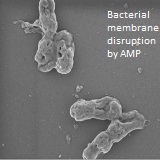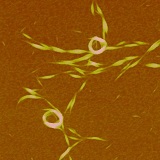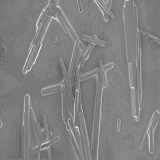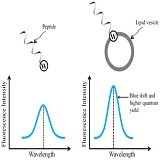Research Interest
Peptide-based antibioticsIt is amazing that an astonishingly large number of species have coexisted with microbes thought their evolution on this planet. These species have developed the tools to control the natural microflora and combat the pathogenic microorganisms. Peptides constitute an important class of such tools. Organisms ranging from bacteria to human use antimicrobial peptides as a part of their innate immune system. This implies that peptides hold promise to combat the clinical microbes including the ones that are resistant to conventional drugs. We aim to improve the potency of the naturally occurring peptide alongside improving their spectrum of killing. Although naturally-occurring sequences are the preferred templates to come up with improved antibiotics, we also plan to design the novel peptide-based antibiotics based on the principles of microbial killing. |
 |
Protein/peptide aggregation and amyloid diseasesAmyloid diseases are characterized by deposition of fibrous protein aggregates. Although amyloid diseases are known for more than a century; largely due to the lack of complete understanding of the pre-fibrillar structures, no effective therapy has come up against them. We, at BCL, are studying the mechanisms underlying assembly of amyloidogenic proteins and peptides to come up with effective therapeutic approaches. |
 |
Peptide-based functional superstructuresSelf-assembly of small molecules through non-covalent interactions into superstructures has opened up a plethora of possibilities and promises to be an excellent alternative to top-down nanofabrication. Short peptides and peptidomimetics are known to assemble into a variety of structures such as tubes, rods, fibrils, spheres, vesicles, tapes, micelles, bilayers, and hydrogels. We are interested in designing the peptides/peptidomimetics that would self-assemble so as to result in the structures with desired emergent properties. Such nano-scale materials are expected to find applications in material science, electronics, photonics, and biomedicine. |
 |
Peptide-membrane interactionsInteraction of proteins with membranes is absolutely central to the existence of life. We, at BCL, are studying the following aspects of protein/peptide-membrane interaction:
|
 |